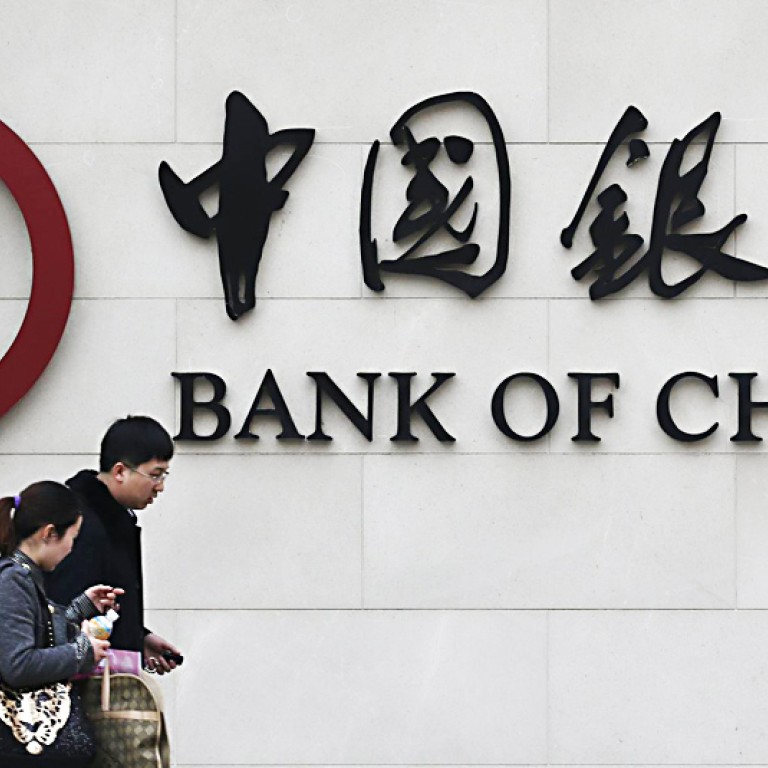
China investment banks making market inroads
Investment banks stealing share from foreign rivals in capital market


The botched listing confirmed for many the persistent view of mainland investment banks: they could not be trusted to lead deals, they were not good at distribution, and they were prone to fundamental errors because of inexperience. In other words, for a big offshore transaction, it was best to hire a large Western bank.
Aside from the fact that three large foreign banks were also on the Resourcehouse float - HSBC, RBS and UBS - this thinking seemed odd.
Mainland banks have been gaining market share from international rivals since the global financial crisis, and the trend is continuing. Data from Thomson Reuters shows that before the crisis, mainland banks accounted for about 13 per cent of the offshore equity and debt deal volumes from mainland issuers. Post-crisis, their share is about 20 per cent.
The impact was most pronounced in debt, by far the biggest source of issuance from the mainland. Before the crisis, mainland banks led virtually no bonds for mainland firms. During the crisis, they suddenly led more than half of all the issuances, and their market share has since settled comfortably above 20 per cent.
These days, it is not just impressive how much deal volume mainland institutions are capturing, it is the sheer number of participants. Ten years ago, there were only two mainland banks that would handle a cross-border deal: BOC and China International Capital Corp. Now, a large number of Chinese names would appear on international bonds and initial share sales from the mainland. They include Essence Securities, China Renaissance and Changjiang Securities. They are among the many new dealmakers in the mainland's cross-border markets.

The massive growth in Hong Kong's dim sum bond market has also played to the strengths of the domestic houses. Many institutions have experience in leading yuan deals in the domestic market, so it is fairly easy to convince a client to do a yuan bond in the international market.
"It was natural for [mainland] banks and securities firms to expand into the international debt capital markets business, especially for their [mainland] clients with which they have very close relationships and have been doing their onshore bonds," said David Yim, the head of north Asia debt capital markets at RBS.
The move of the mainland market towards more issuance from medium-sized privately owned firms also helps mainland institutions. Such issuers are too small and too inscrutable to be covered by the likes of UBS or Deutsche Bank. But a brokerage based in the same province as the issuer is in an excellent position to lead the deal.
"If you are PetroChina, you will pick one of the top 10 investment banks to do a deal. But if you are in Sichuan province, you'll pick the local brokerage," said an investment banking head at a leading mainland institution.
Just because an institution is chosen does not mean it is good. Bankers tell of mainland banks using their relationships with issuers to force their way into the bookrunner ranks of an initial public offering the week before the listing circular is printed, and then offering effectively nothing to the deal, and paid next to nothing in fees. Indeed, a number of institutions were said to have joined Sinopec Engineering's listing last year on that basis.
This explains why Hong Kong listings these days involve so many banks - there were 21 on China Galaxy Securities' offering last year, for example.
With the exception of a handful of established firms - CICC, BOC and Citic Securities are at the top of this short list - mainland securities firms lack certain basic capabilities. For example, they do not publish good research, they do not have strong trading arms, and they do not have international sales or syndicate teams.
"The bigger [mainland] houses are getting into trading and sales, but they lack in terms of research, and conveying [to clients] that they understand a sector," said Philippe Espinasse, a former head of equity capital markets at Nomura.
Their main shortcoming can be boiled down to distribution. They have little ability to sell deals outside Hong Kong and mainland China and into the big markets of the US and Europe.
Perhaps this is overstated. A deal worth US$300 million or less would be distributed within Asia, said bankers. So long as the transaction is within this threshold, an issuer may not need an international bank's global reach.
Moreover, mainland banks do bring specialised sales access, such as the ability to distribute to the rich, local family businesses and corporate investors.
Bankers from rival firms disagree about what Chinese banks offer. Everyone agrees they are here to stay.
